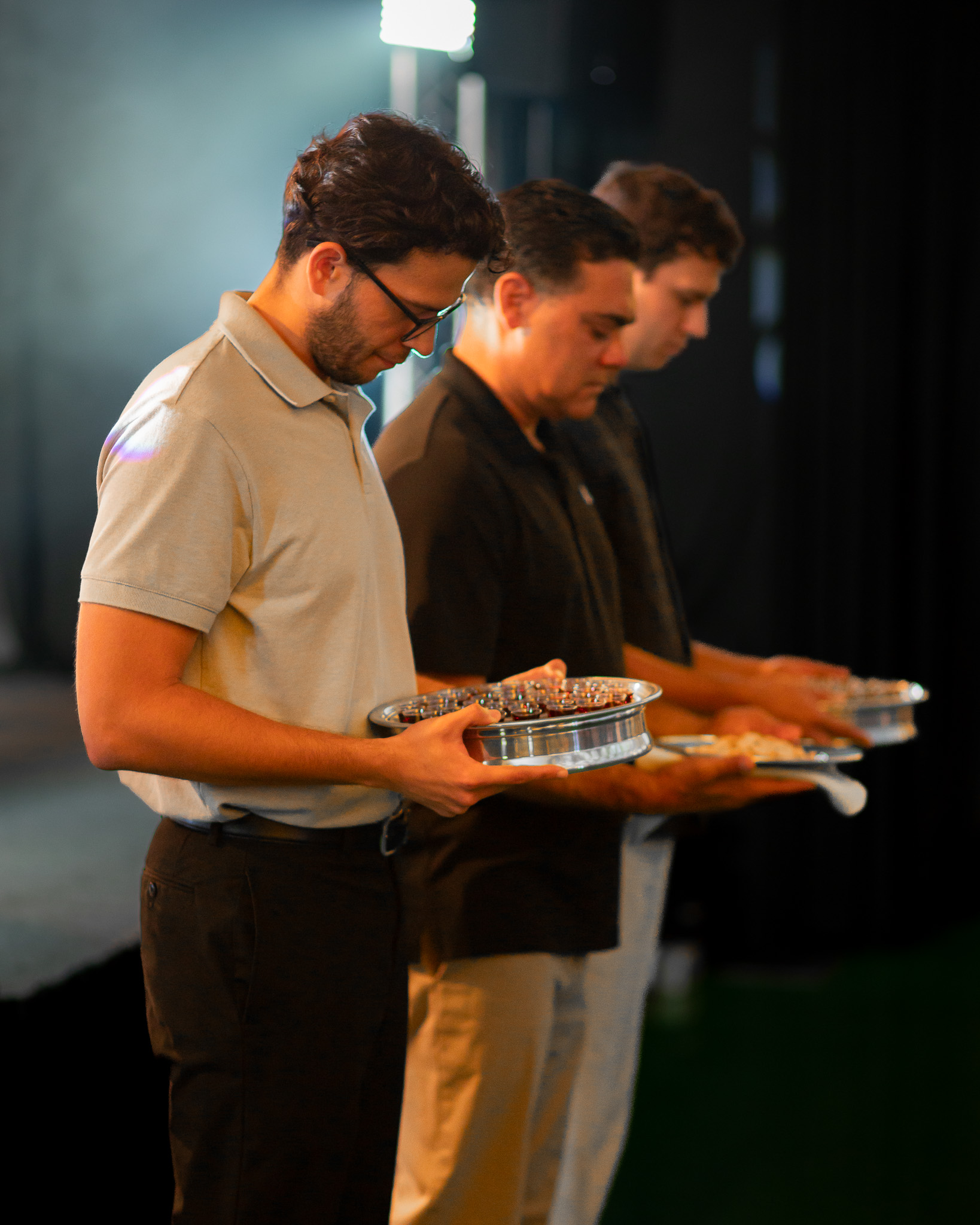
What is Communion?
In this article, you'll learn how communion began with Jesus, why it matters for believers today, and how it invites us to remember His sacrifice and live in unity.
Communion is something that Jesus instituted for His people. Communion reminds us of His death, symbolizes faith, and anticipates His return. Communion is also referred to as the Lord's Supper or the Lord's Table. Communion employs simple means—bread and wine or juice—to symbolize something of significance: the body and blood of Jesus Christ.
The Origin of Communion
Communion started with Jesus on the night in which He was betrayed. He sat down with His inner circle of disciples to eat the Passover feast, something which Jewish folk had done for centuries in remembrance of how God had rescued them from Egypt. Yet Jesus did something different at that meal. He broke the bread, blessed it, took the bread, and gave it to His disciples by saying, "Take and eat; this is my body." He then took the cup of wine and said, "Drink from it, all of you. This is my blood of the covenant, which is poured out for many for the forgiveness of sins" (Matthew 26:26–28).
Jesus at this time signaled that He would be the final and last sacrifice. What they had perceived as a Passover feast became an enduring image of what He had come to accomplish—give His life for the world's sins.
Jesus' Words That Came Before
This wasn’t the first time Jesus spoke of His body and blood. Earlier, in John 6:53–57, He told a crowd that unless they ate His flesh and drank His blood, they would have no life in them. Many people were confused and disturbed by His words. They thought He was speaking literally and couldn’t accept it. As a result, many stopped following Him (John 6:60–66). But Jesus was preparing them for what was coming. He was speaking of spiritual truth, not physical action. He was pointing toward the cross.
Jesus used powerful images because what He came to do was not small. He came to offer His body and pour out His blood to give life to the world. Communion is how we remember that offering and take it to heart.
Communion in the Early Church
After Jesus rose from the dead and returned to heaven, His followers began to meet regularly. Part of their worship included breaking bread and sharing a cup to remember Him. The early church didn’t see this as a routine or a ritual. They saw it as a way to stay connected to Jesus and to each other.
The Apostle Paul wrote to the church in Corinth to help them understand the meaning of communion. He said, “Is not the bread that we break a participation in the body of Christ? And is not the cup… a participation in the blood of Christ?” (1 Corinthians 10:16). Communion was not just a symbol—it was a shared act of faith. It was about remembering Jesus, yes, but it was also about unity, fellowship, and devotion.
Paul also gave a serious warning. He told the believers not to take communion lightly. They were to examine their hearts before eating and drinking. To take it carelessly was to dishonor Christ and risk judgment (1 Corinthians 11:26–29). Communion was never meant to be a habit or a show. It was meant to be personal, thoughtful, and holy.
What Communion Means for Christians Today
Today, communion still holds deep meaning for followers of Jesus. It’s one of the two main practices Jesus gave to His church, along with baptism. While the Bible doesn’t say how often communion should be observed, it does show that it should be taken with care, with reverence, and with reflection.
Communion helps us look back at the cross. It reminds us that Jesus gave His life so we could be forgiven. It helps us look inward, to examine our hearts and confess our sins. And it helps us look forward, to the day Jesus returns. When we take communion, we say to one another, “He died for us, He lives today, and He’s coming back.”
Communion also brings the church together. It shows that we are one body, united by our faith in Christ. As Paul wrote, “Because there is one loaf, we, who are many, are one body” (1 Corinthians 10:17). In a divided world, communion is a reminder that our unity is found not in ourselves, but in Jesus.
A Simple Yet Powerful Practice
Though the act of communion is simple—eating bread and drinking from a cup—it holds deep meaning. It reminds us that salvation cost Jesus everything. It invites us to receive His grace again and again. It calls us to walk in unity, in faith, and in hope.
Communion is not about perfection. It’s about remembrance. It's about grace. It’s a way of saying with our actions what we believe in our hearts: Jesus died for us, rose again, and will one day return.
join in what God is doing at Encounter Church

